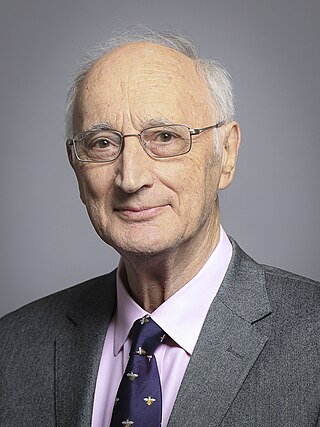
George Samuel Knatchbull Young, Baron Young of Cookham,, known as Sir George Young, 6th Baronet from 1960 to 2015, is a British Conservative Party politician who served as a Member of Parliament (MP) from 1974 to 2015, having represented Ealing Acton from 1974 to 1997 and North West Hampshire from 1997. He has served in Cabinet on three occasions: as Secretary of State for Transport from 1995 to 1997; as the Leader of the House of Commons and Lord Privy Seal from 2010 to 2012; and as Conservative Chief Whip from 2012 to 2014.
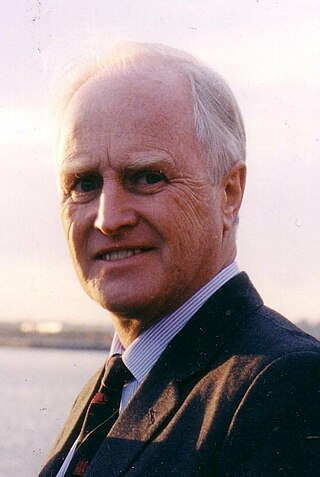
Winston Spencer Churchill, generally known as Winston Churchill, was an English Conservative politician and a grandson of British prime minister Winston Churchill. During the period of his prominence as a public figure, he was normally referred to as Winston Churchill, in order to distinguish him from his grandfather. His father Randolph Churchill was also an MP.
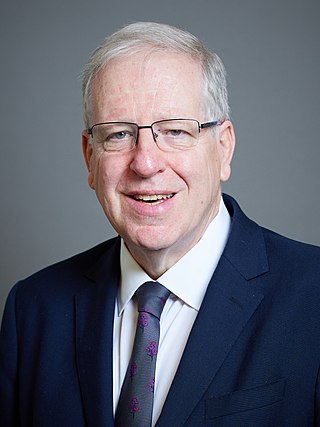
Patrick Allen McLoughlin, Baron McLoughlin, is a British politician. A member of the Conservative Party, he first became the Member of Parliament (MP) for West Derbyshire following the 1986 by-election. The constituency became the Derbyshire Dales for the 2010 general election; McLoughlin remained the seat's MP until 2019.
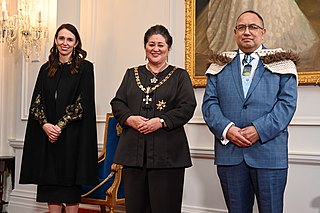
The Order of precedence in New Zealand is a guide to the relative seniority of constitutional office holders and certain others, to be followed, as appropriate at State and official functions. The previous order of precedence was revoked and Queen Elizabeth II approved the following Order of Precedence in New Zealand effective 20 September 2018:
- The Monarch of New Zealand.
- The Governor-General or, while acting in the place of the Governor-General, the officer administering the Government
- The Prime Minister
- The Speaker of the House of Representatives
- The Chief Justice
- The Dean of the Diplomatic Corps
- The Deputy Prime Minister
- Ministers of the Crown
- Former Governors-General
- Ambassadors and High Commissioners in New Zealand and Chargés d’Affaires accredited to New Zealand.
- The Leader of the Opposition in the House of Representatives
- Leaders, including co-leaders and joint leaders, of political parties represented in the House of Representatives, other than Ministers of the Crown.
- Members of the House of Representatives. There is no established order of precedence over members of parliament in general, although each party has its internal ranking.
- Judges of the Supreme Court of New Zealand, the Court of Appeal and the High Court of New Zealand.
- Former Prime Ministers, former Speakers of the House of Representatives, former Chief Justices, and members of the Privy Council.
- Mayors of territorial authorities and chairpersons of regional councils, while in their own cities, districts and regions. In 1989, boroughs and counties were amalgamated into district councils. District mayors, and the Chatham Islands mayor could expect to be accorded this same precedence.
- The Public Service Commissioner, Chief of Defence Force, Commissioner of Police, and Officers of Parliament .
- The Solicitor-General, Clerk of the House of Representatives, and Clerk of the Executive Council when attending a function involving the exercise of the position’s specific responsibilities.
- Chief executives of public service and non-public service departments.
- The Vice Chief of Defence Force, and Chiefs of Navy, Army and Air Force, and other statutory office holders.
- Consuls-General and Consuls of countries without diplomatic representation in New Zealand.
- Members of New Zealand and British orders, and holders of decorations and medals in accordance with the Order of Wear in New Zealand.
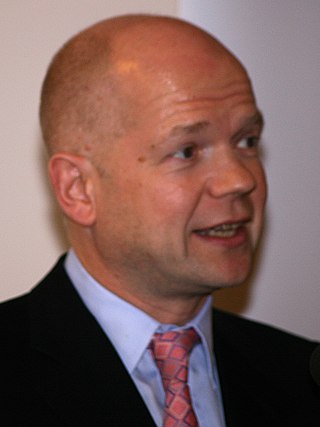
The Shadow Cabinet appointed by Conservative Party leader William Hague was the Official Opposition Shadow Cabinet from 1997 to 2001. Following his initial appointments in June 1997, Hague reshuffled the Shadow Cabinet five times before his resignation as leader following defeat in the 2001 general election.
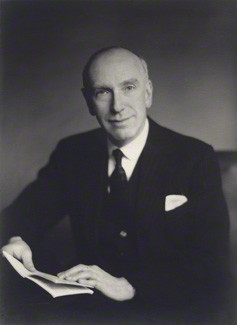
Ralph Assheton, 1st Baron Clitheroe,, was an English aristocrat and politician.

The Churchill war ministry was the United Kingdom's coalition government for most of the Second World War from 10 May 1940 to 23 May 1945. It was led by Winston Churchill, who was appointed prime minister of the United Kingdom by King George VI following the resignation of Neville Chamberlain in the aftermath of the Norway Debate.
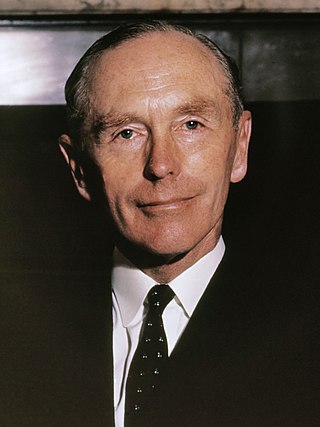
The 1964 Prime Minister's Resignation Honours were officially announced in the London Gazette of 27 November 1964 and marked the October 1964 electoral defeat of the Prime Minister, Sir Alec Douglas-Home.
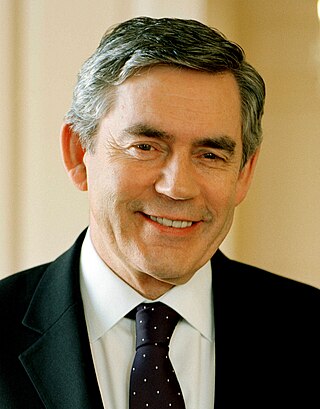
The 2010 Dissolution Honours List was issued on 28 May 2010 at the advice of the outgoing Prime Minister, Gordon Brown. The list was gazetted on 15 June.
The 1966 Dissolution Honours List was issued on 19 May 1966 following the dissolution of the United Kingdom parliament in preparation for a general election.
A parliamentary by-election was held on 30 March 1939 for the British House of Commons constituency of Kincardine and Western Aberdeenshire.
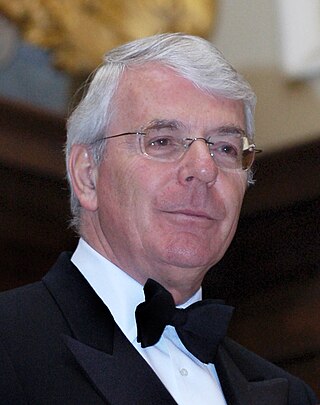
The 1992 Dissolution Honours List was gazetted on 5 June 1992 following the advice of the Prime Minister, John Major.

The 1987 Dissolution Honours List was gazetted on 30 July 1987 following the advice of the Prime Minister, Margaret Thatcher.
The February 1974 Dissolution Honours List was issued on 2 April 1974 following the dissolution of the United Kingdom parliament in preparation for a general election.

The 2016 Prime Minister's Resignation Honours are honours awarded following the July 2016 resignation of Prime Minister David Cameron. The life peerages and other honours were issued as two separate lists by the Cabinet Office on 4 August 2016 and all honours were gazetted as one list on 16 August 2016. This was the first Prime Minister's Resignation Honours since 1997.
The 1970 Dissolution Honours List was issued on 2 June 1970 to mark the dissolution of the United Kingdom parliament prior to the 1970 general election.
The 1964 Dissolution Honours were officially announced on 27 November 1964 and marked the dissolution of parliament following the 1964 General Election.
The 1979 Dissolution Honours List was issued in June 1979 following the general election of that year.

The 2019 Prime Minister's Resignation Honours are honours awarded following the July 2019 resignation of the Prime Minister, Theresa May. The life peerages and other honours were issued as two separate lists by the Cabinet Office on 10 September 2019, while the honours were gazetted as one list on 28 October 2019.

The 2022 Prime Minister's Resignation Honours are honours awarded following the September 2022 resignation of the Prime Minister, Boris Johnson.














